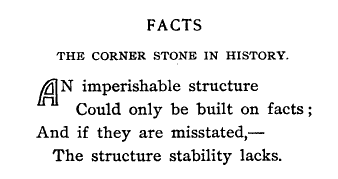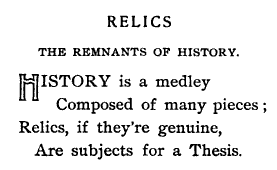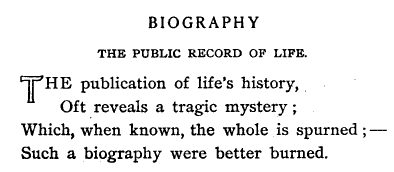Curator’s Comment: This Thursday, August 21st, will be the 103rd anniversary of the Mona Lisa’s theft from the Louvre (she went missing for over two years). This poem was written in honor of her disappearance sometime between 1911 and 1918 when it was published in an anthology, although it was likely written sometime after 1911 when she was taken and before 1913 when she was returned.
Mona Lisa, Mona Lisa!
Have you gone? Great Julius Caesar!
Who’s the Chap so bold and pinchey
Thus to swipe the great da Vinci,
Taking France’s first Chef d’oeuvre
Squarely from old Mr. Louvre,
Easy as some pocket-picker
Would remove our handkerchicker
As we ride in careless folly
On some gaily bounding trolley?
Mona Lisa, Mona Lisa,
Who’s your Captor? Doubtless he’s a
Crafty sort of treasure-seeker,
Ne’er a Turpin e’er was sleeker,
But, alas, if he can win you
Easily as I could chin you,
What is safe in all the nations
From his dreadful depredations?
He’s the style of Chap, I’m thinkin’,
Who will drive us all to drinkin’!
Mona Lisa, Mona Lisa,
Next he’ll swipe the Tower of Pisa,
Pulling it from out its socket
For to hide it in his pocket;
Or perhaps he’ll up and steal, O,
Madame Venus, late of Milo;
Or maybe while on the grab he
Will annex Westminster Abbey,
And elope with that distinguished
Heap of Ashes long extinguished.
Maybe too, O Mona Lisa,
He will come across the seas a,
Searching for the style of treasure
That we have in richest measure.
Sunset Cox’s brazen statue,
Have a care lest he shall catch you!
Or maybe he’ll set his eye on
Hammerstein’s, or the Flatiron,
Or some bit of White Wash done
By those lads at Washington,
Truly he’s a crafty geezer,
Is your Captor, Mona Lisa!





 Curator’s Comments: This Saturday, October 11th, is the 124th anniversary of the founding of the
Curator’s Comments: This Saturday, October 11th, is the 124th anniversary of the founding of the 








